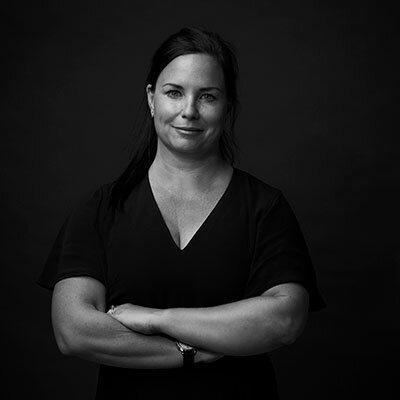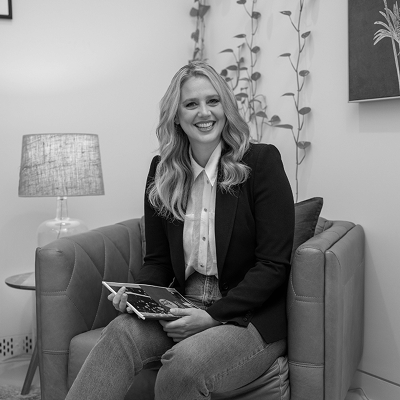
ASKING FOR A FRIEND
How do we look after ourselves when working on briefs and topics that are emotionally confronting?
ASKING FOR A FRIEND - QUESTION
UX research can take you into emotionally heavy territory, but how do you look after yourself when participants share difficult stories? Psychologist Tara Hurster (founder of The TARA Clinic), alongside Jasmin Bedir (CEO of Innocean Australia) and host Andy Wright (founder of Never Not Creative), share practical strategies for protecting your mental health during challenging research projects. From building resilience foundations to creating proper debrief systems, discover how to navigate emotionally difficult research while maintaining your wellbeing.
Protecting Your Mental Health in UX Research: A Guide to Self-Care
UX research often takes us into emotionally challenging territory. When participants share difficult experiences, we absorb their stories in ways that can stay with us long after the session ends. Learning how to look after ourselves during these research projects isn't just helpful—it's essential.
This question was answered by Tara Hurster, psychologist and founder of The TARA Clinic, alongside Jasmin Bedir, CEO of Innocean Australia and founder of Fckthecupcakes, and host Andy Wright, founder of Never Not Creative. Tara's expertise in mental health and therapeutic practices provides crucial insights for researchers navigating emotionally heavy work.
Build Your Resilience Foundation First
The key to handling difficult research topics starts before you even begin the project. As Tara explains, "If we're already starting up here and we've only got that little bit left of room to play with, it doesn't take very much for us to completely explode out of the top."
Think of your mental capacity like a Tetris game. If you're already near the top when you start, there's little room for the additional emotional weight that research can bring. Building a strong foundation means "making sure that we're managing our own internal space a lot more effectively."
This foundation includes "mindfulness practice, exercise, sleep hygiene, therapy, being in healthy relationships, communication, connecting more." These aren't luxuries—they're the tools that help widen your resilience window, giving you more capacity to handle the ups and downs that come with emotionally challenging work.
Create a Proper Debrief System
One of the most practical steps you can take is establishing a solid debrief process. Tara recommends "setting aside a good 30 to 45 minutes to really debrief with someone" after each interview or workshop.
This debrief person could be "your HR person who usually tends to have a few more skills in managing mental health and wellbeing." You might even call your Employee Assistance Programme (EAP) service for a debrief after particularly heavy research days. "These are what those services are there for," Tara notes.
The debrief isn't just about venting—it's about processing what you've heard in a structured way that helps you leave work at work.
Know Your Boundaries and Communicate Them
As Andy points out, there's a balance between showing empathy and protecting yourself: "You want to be showing as really listening and really wanting to understand someone. But actually, you've got to be quite careful around your own boundaries."
If you notice you're taking research content home with you, "this really needs to be communicated to your manager," Tara advises. From a systems perspective, there are ways to create buffers between you and the most difficult details.
Just like in group therapy, where sharing is encouraged but specifics are limited to avoid triggering others, research requires knowing "what level to ask about" and having strategies to "park" information when it becomes overwhelming.
Your Employer's Duty of Care
This isn't something you should handle entirely on your own. As Andy emphasises, "If you're going to put someone into these kinds of situations, you actually do have to make sure they've got the safety net around them."
Jasmin agrees completely: "Duty of care, 100%. I would feel really horrible to send people into projects where they would be exposed to information that affects them." She suggests that anyone working in emotionally challenging research spaces should "overcompensate by putting in additional care."
If your workplace isn't providing adequate support for emotionally challenging research, it's worth having that conversation with management. Your wellbeing isn't negotiable.
When to Seek Professional Help
If you find that research content is significantly affecting your sleep, relationships, or daily functioning, it may be time to seek additional support. Signs that you might benefit from professional help include persistent intrusive thoughts about participants' stories, difficulty switching off after work, or feeling overwhelmed by the emotional weight of your research.
Remember, seeking help is a sign of professional wisdom, not weakness. For resources and support options, visit the Where to get help section on the Never Not Creative website.
Looking after yourself during emotionally challenging UX research isn't selfish—it's essential for doing good work sustainably. By building your resilience foundation, creating proper debrief systems, and knowing your boundaries, you can navigate difficult research topics while protecting your mental health. Remember, you can't pour from an empty cup, and taking care of yourself ultimately helps you take better care of your participants and your work.
our guests
Industry Leader

Jasmin Bedir
Innocean
Mental Health Expert

Tara Hurster
Host

